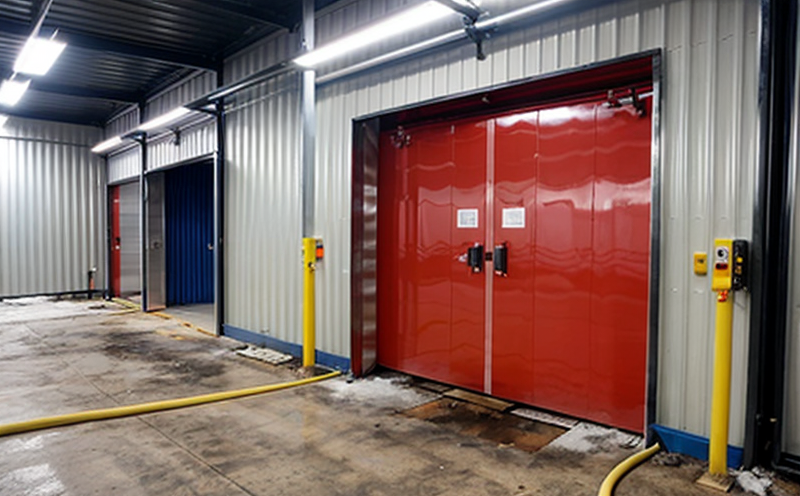Cold storage fire suppression inspection
Ensuring the safety and integrity of cold storage facilities is paramount in safeguarding valuable commodities such as food products, pharmaceuticals, and other temperature-sensitive materials. Cold storage fire suppression inspections are critical for maintaining compliance with international standards like ISO 9001:2015 and NFPA (National Fire Protection Association) codes specific to refrigerated environments.
The primary goal of a cold storage fire suppression inspection is to evaluate the effectiveness of the installed systems in preventing, detecting, and extinguishing fires. These inspections are conducted by qualified personnel who possess specialized knowledge in refrigeration engineering and fire protection technology. The process involves a comprehensive review of the existing system components including but not limited to:
- Fire detection devices
- Suppression agents (e.g., CO2, FM-200)
- Valves and piping systems
- Control panels and monitoring equipment
During the inspection, the focus is on identifying any potential weaknesses or areas that may require immediate attention. This includes assessing the integrity of insulation materials used in cold storage units to ensure they do not contribute fuel for fires. Additionally, the performance of the fire detection systems is tested under various environmental conditions to simulate real-world scenarios.
One key aspect of these inspections is the evaluation of the suppression agents' effectiveness. For instance, CO2 and FM-200 are commonly used in cold storage facilities due to their low toxicity levels and minimal impact on refrigeration operations. However, it's essential to ensure that the agent delivery systems are properly maintained and calibrated.
Another critical element is the inspection of the control panels responsible for activating suppression systems upon detecting a fire. The reliability of these systems can significantly influence the success rate in extinguishing fires before they spread. Furthermore, regular maintenance schedules play an integral role in ensuring that all components function as intended during emergencies.
Quality and Reliability Assurance
The quality assurance process for cold storage fire suppression inspections involves several rigorous steps aimed at guaranteeing the highest level of accuracy and dependability. Upon completion of each inspection, detailed reports are generated, outlining all findings along with recommendations for corrective actions where necessary.
A major component of this quality assurance framework is adhering to stringent industry standards such as NFPA 72: National Fire Alarm Code and ASHRAE (American Society of Heating, Refrigerating and Air-Conditioning Engineers) guidelines. Compliance with these standards ensures that the inspections meet both regulatory requirements and best practices within the sector.
Regular follow-up visits are also conducted to monitor any changes or updates made after initial recommendations have been implemented. This ongoing evaluation helps maintain continuous improvement in fire safety protocols across cold storage facilities globally.
Environmental and Sustainability Contributions
Incorporating sustainable practices into cold storage fire suppression inspections not only enhances overall operational efficiency but also contributes positively to environmental conservation efforts. By ensuring that systems are functioning optimally, less energy is wasted unnecessarily, which translates directly into reduced carbon footprints.
The use of environmentally friendly suppressants like FM-200 further supports green initiatives by minimizing adverse impacts on the environment compared to conventional alternatives. Additionally, proper insulation techniques employed during inspections help reduce unnecessary heat loss or gain within storage units, thus optimizing energy consumption and operational costs over time.
Implementing stringent inspection procedures also prevents accidental leaks of harmful substances into nearby ecosystems, fostering healthier environments for all stakeholders involved. Overall, integrating sustainable practices into cold storage fire suppression inspections represents a proactive approach towards building resilient infrastructure capable of addressing future challenges effectively while promoting responsible stewardship of natural resources.





